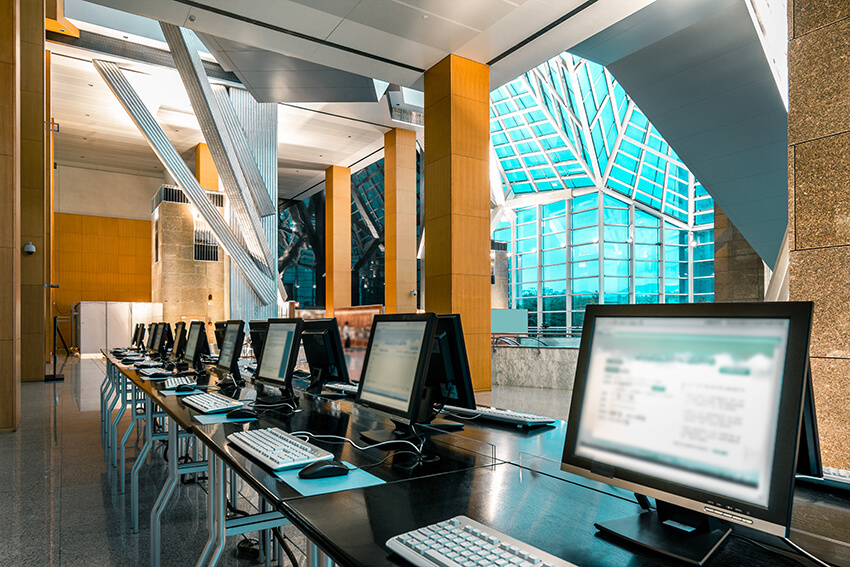The Ultimate Enabler: How Digital Platforms Revolutionize Grievance Redress Mechanisms (GRM)

In today’s digital age, technology has become a cornerstone in streamlining and improving various processes, including complaints redress mechanisms (GRMs).
By leveraging digital platforms, organizations and governments can address grievances more efficiently, transparently, and accessibly.
This blog explores the critical role digital platforms play in transforming GRMs, making them the ultimate enablers in grievance management.
The Evolution of Grievance Redress Mechanisms
Historically, grievance redress mechanisms were primarily paper-based and manually managed, leading to inefficiencies, delays, and a lack of transparency. With the advent of digital platforms, these traditional methods are being overhauled, resulting in more streamlined and effective grievance handling processes.
Why Digital Platforms Are Essential for GRMs
- Enhanced Accessibility
Digital platforms break down geographical barriers, allowing individuals to submit grievances from anywhere at any time. This accessibility ensures that more people can report issues without the constraints of location or office hours.
- Improved Efficiency
Automation and real-time processing capabilities of digital platforms significantly speed up the grievance redress process. Automated acknowledgments, tracking, and resolution updates keep all stakeholders informed and reduce the burden of manual follow-ups.
- Increased Transparency
One of the most significant advantages of digital GRMs is the transparency they provide. Every step of the grievance handling process is logged and tracked, offering a clear audit trail. This transparency builds trust among users, as they can see the progress and status of their grievances.
- Data-Driven Insights
Digital platforms allow for the collection and analysis of data on grievances. This data can provide valuable insights into common issues, helping organizations identify patterns and implement systemic changes to prevent future grievances.
Key Features of Effective Digital GRMs
- User-Friendly Interface
A user-friendly interface is crucial for ensuring that individuals can easily navigate the platform to submit their grievances. Simplified forms, clear instructions, and intuitive navigation enhance user experience and participation.
- Real-Time Tracking and Notifications
Users should be able to track the status of their grievances in real time. Automated notifications and updates keep them informed at every stage of the process, reducing anxiety and uncertainty.
- Multi-Channel Support
To cater to diverse populations, digital GRMs should offer multi-channel support, including web portals, mobile apps, and social media integration. This ensures that users can choose the most convenient method for submitting their grievances.
- Secure and Confidential
Security is paramount in digital GRMs. Platforms must ensure that user data is protected and that confidentiality is maintained throughout the grievance handling process.
Real-World Examples of Digital GRMs
- ECOWAS Regional Competition Authority Complaint Management System (ERCA CMS)
The ECOWAS Regional Competition Authority’s Complaint Management System (ERCA CMS) is a prime example of a digital GRM. This platform allows individuals and businesses within the Economic Community of West African States (ECOWAS) to submit complaints related to competition issues. The system has enhanced the efficiency and transparency of grievance redress within the region, providing real-time updates and a secure, user-friendly interface.
- The Resilient Urban Sierra Leone Project Grievance Redress Mechanism System (RUSLP GRM)
The Resilient Urban Sierra Leone Project (RUSLP) GRM is another excellent example of a digital GRM. This platform allows citizens to lodge complaints regarding urban development projects. The RUSLP GRM ensures efficient handling of grievances with real-time tracking, transparent processes, and secure data management, ultimately contributing to improved urban resilience in Sierra Leone.
The Future of Digital GRMs
As technology continues to evolve, digital GRMs will likely incorporate advanced features such as artificial intelligence (AI) and blockchain. AI can help in automating the categorization and prioritization of grievances, while blockchain can provide an immutable record of all grievance transactions, further enhancing transparency and trust.
Wrapping Up: Embracing Digital Platforms for Effective Grievance Management
In conclusion, digital platforms are revolutionizing grievance redress mechanisms, making them more accessible, efficient, and transparent. By embracing these technologies, organizations and governments can significantly improve their grievance handling processes, leading to higher user satisfaction and trust.
So, why wait? It’s time to leverage the power of digital platforms to transform your grievance redress mechanisms and ensure that every voice is heard and every issue is addressed promptly and effectively.
FAQs
Q: What is a grievance redress mechanism (GRM)? A: A GRM is a system that allows individuals to submit complaints or grievances about services, policies, or actions of an organization and facilitates the resolution of these grievances.
Q: How do digital platforms enhance GRMs? A: Digital platforms enhance GRMs by making them more accessible, efficient, and transparent. They allow for real-time tracking, automated updates, and data-driven insights.
Q: What are some examples of digital GRMs? A: Examples include the ECOWAS Regional Competition Authority’s Complaint Management System (ERCA CMS) and the Resilient Urban Sierra Leone Project (RUSLP) GRM, both of which have successfully improved the efficiency and transparency of grievance redress.
Q: What future technologies might impact digital GRMs? A: Future technologies such as artificial intelligence and blockchain are expected to further enhance the capabilities of digital GRMs, offering even more efficient and transparent grievance handling processes.
External Links:
- ECOWAS Regional Competition Authority Complaint Management System (ERCA CMS)
- Resilient Urban Sierra Leone Project (RUSLP) GRM
